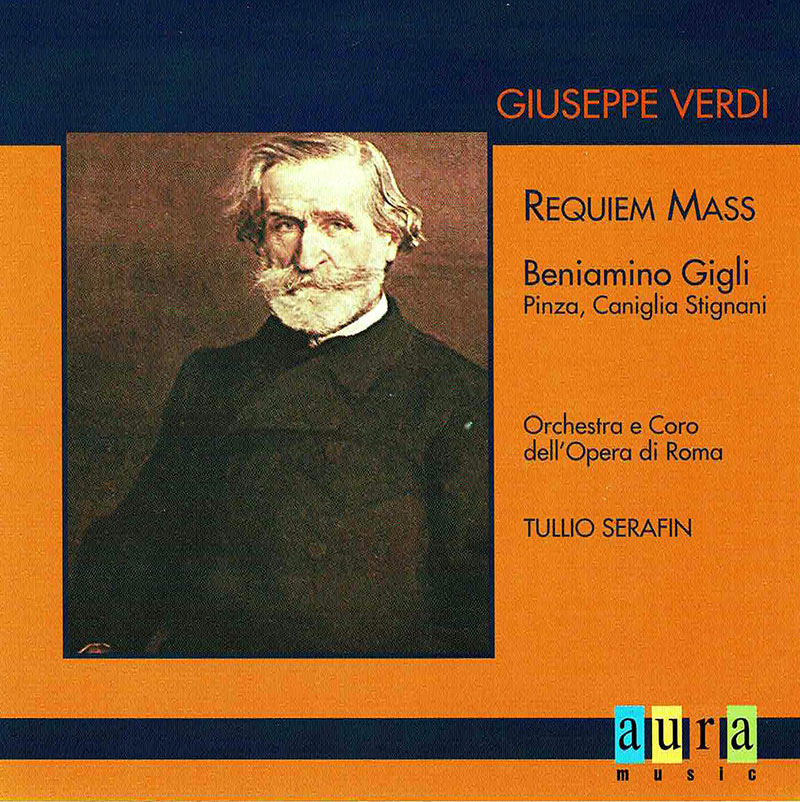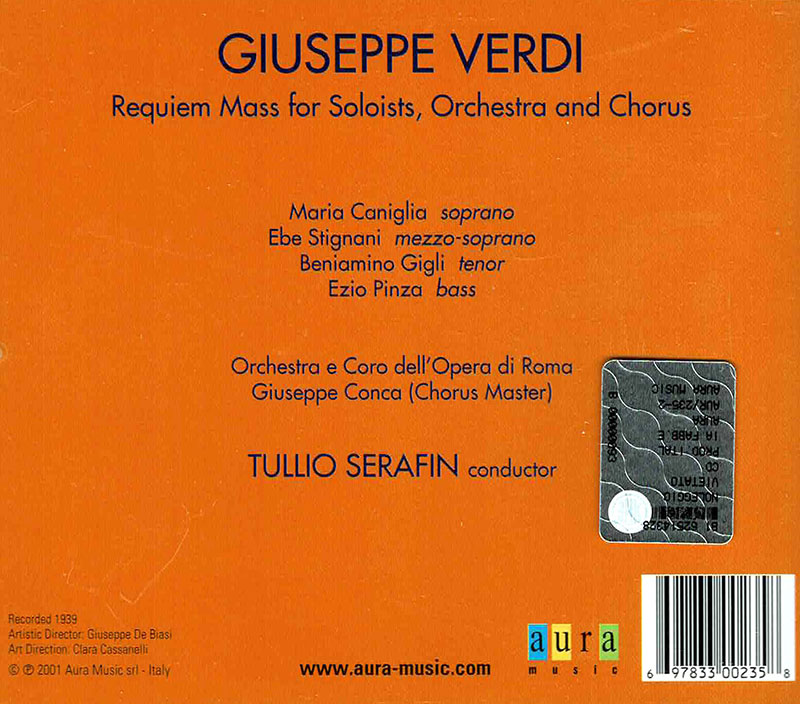Logowanie
Dziś nikt już tak genialnie nie jazzuje!
Bobby Hutcherson, Joe Sample
San Francisco
SHM-CD/SACD - NOWY FORMAT - DŻWIĘK TAK CZYSTY, JAK Z CZASU WIELKIEGO WYBUCHU!
Wayne Shorter, Freddie Hubbard, Herbie Hancock, Ron Carter, Elvin Jones
Speak no evil
UHQCD - dotknij Oryginału - MQA (Master Quality Authenticated)
Chesky! Niezmiennie perfekcyjny
Winylowy niezbędnik
ClearAudio
Double Matrix Professional - Sonic
najbardziej inteligentna i skuteczna pralka do płyt winylowych wszelkiego typu - całkowicie automatyczna
VERDI, Beniamino Gigli, Ezio Pinza, Maria Caniglia, Ebe Stignani, Roma Opera Orchestra and Chorus, Tulio Serafin
Requiem Mass

Review by: Jed Distler Artistic Quality: 7 Sound Quality: 3 Admirers of Tullio Serafin’s 1939 Verdi Requiem may be familiar with at least four previous CD transfers: Mark Obert-Thorn’s on Pearl; one by Michael Dutton on his own label; and two EMI remasterings. Andrew Walter’s greatly-improved EMI Références transfer replaced EMI’s over-processed 1988 edition 12 years later. On balance, Ward Marston’s Naxos transfer offers the most satisfactory results of all, and at budget price to boot. If you prefer a richer bass equalization (with added bass drum presence as a result), Andrew Walter’s your transfer guy. I suspect that Walter worked from “in-house” source material rather than commercial shellac sets that non-EMI employees are obliged to use. Whatever Marston’s transfer lacks in amplitude is compensated by clearer balances and less-strident sibilants from the soloists. On EMI, for example, the Sanctus section’s opening choral outburst carries more weight, whereas Naxos helps us to ascertain the position of the chorus in relation to the orchestra. The booklet notes, by the way, fail to mention the original recording’s omission of the second a cappella sequence just before the conclusion of the Lux Eterna. The Lacrymosa’s first four beats also were left out, leaving the wonderful mezzo-soprano soloist Ebe Stignani a mere two-beat vamp before her entrance. Marston was able to “loop” this figure and repeat it twice, thereby restoring what Verdi intended. Much ink has been spilled over the years extolling this performance’s high drama and red-blooded, operatic vocal quartet, capped by Ezio Pinza’s larger-then-life sonority and ringing presence. Yet Pinza blends beautifully with his admirable partners, and even Gigli’s occasional showboating (his aspirated “Kyrie” opening solo, and the climax of “Ingemisco”) easily can be absorbed into the fabric of the whole. A work of this size and scope, of course, benefited from the arrival of high fidelity and stereo; but that’s neither here nor there if you’re buying this recording for the singers, as you should. https://www.classicstoday.com/review/review-7033/


































